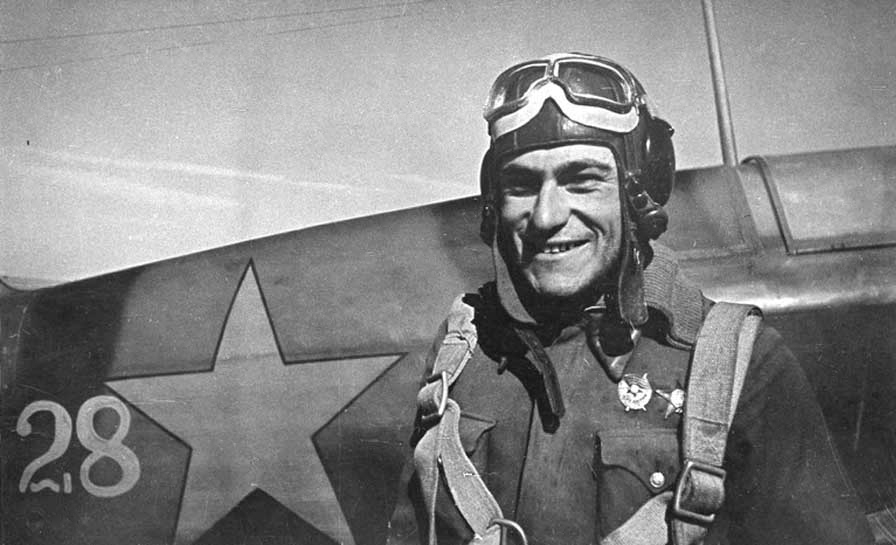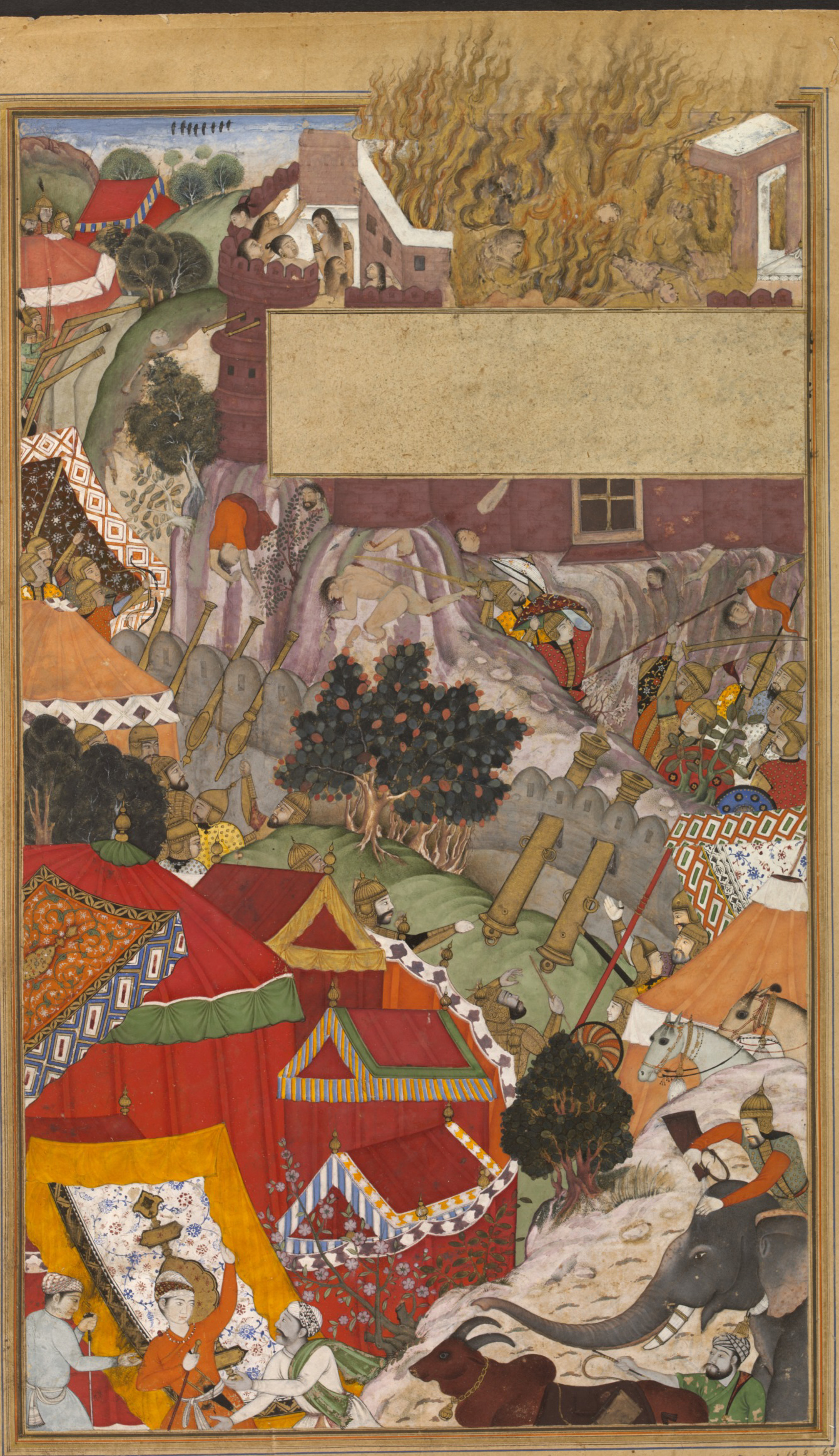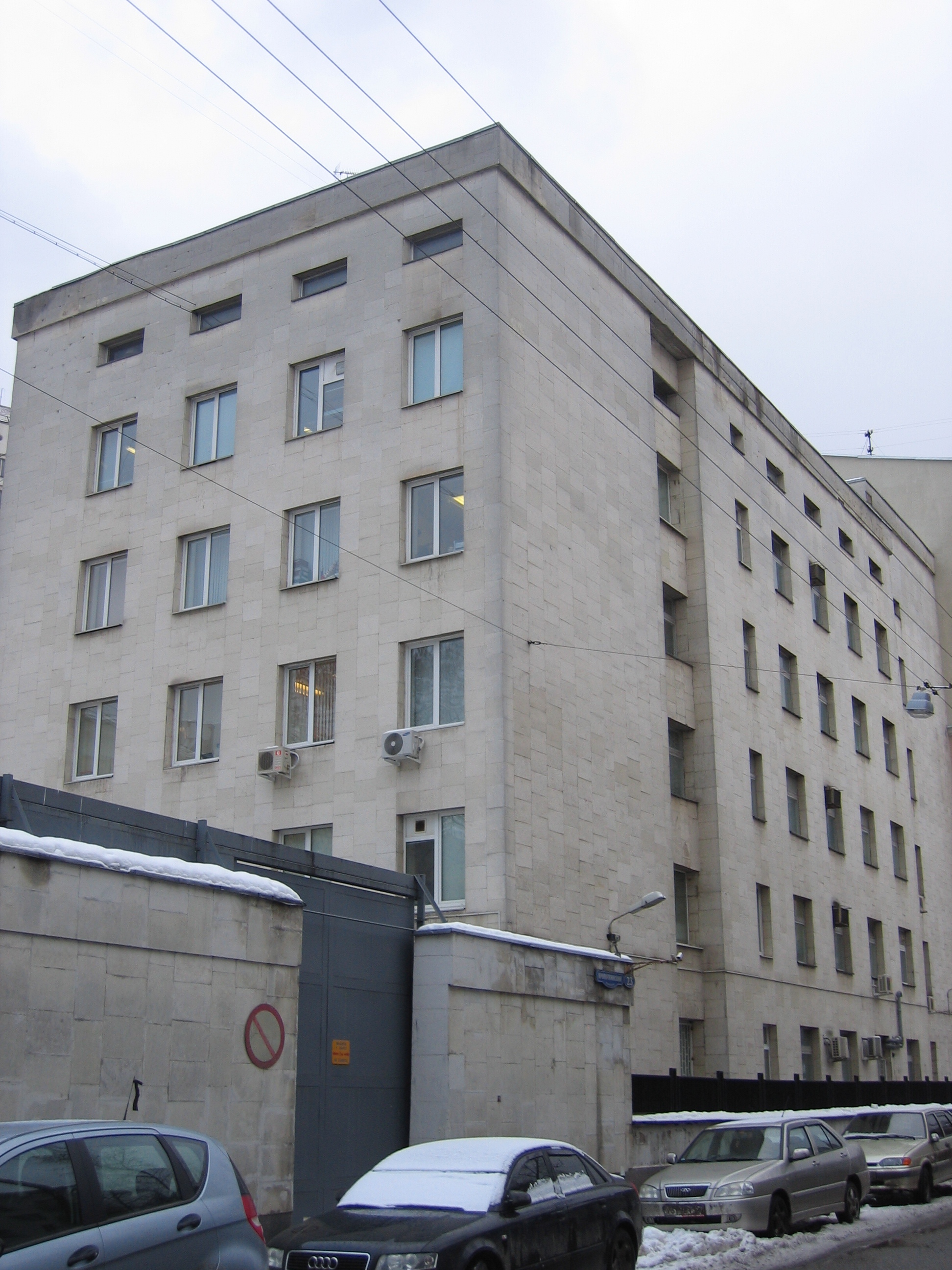|
Yuri Osmanov
Yuri Bekirovich Osmanov ( crh , Yuriy Bekir oğlu Osmanov, ; 1 April 1941, Büyük Qaralez, Bakhchysarai district, Crimean Autonomous Soviet Socialist Republic, RSFSR, USSR — 7 November 1993, Simferopol, Autonomous Republic of Crimea, Ukraine) was a scientist, engineer, Marxist-Leninist, and Crimean Tatar civil rights activist. He was one of the co-founders of the National Movement of Crimean Tatars, which sought full right of return of the Crimean Tatar people to their homeland and restoration of the Crimean ASSR. Early life Osmanov was born on 1 April 1941 in Büyük Qaralez, Crimea. His father Bekir Osmanov was an agronomist of Crimean Tatar ethnicity who became a scout for the Soviet partisans during the German occupation of Crimea, during which Yuri was evacuated to Azerbaijan with his mother, a Belorussian. A postwar book about partisans in Crimea falsely stated that his father was a German spy who was shot, but in reality he survived the war and never sided with th ... [...More Info...] [...Related Items...] OR: [Wikipedia] [Google] [Baidu] |
Büyük Qaralez
Büyük Qaralez (Буюк Къаралез in Cyrillic, detatarized name is Krasny Mak; russian: Красный Мак) is a selo in Bakhchysarai Raion of the Autonomous Republic of Crimea, a disputed territory recognized by a majority of countries as part of Ukraine and incorporated by Russia as the Republic of Crimea. It is located in the Crimean Mountains, southerly of Bakhchysarai. The village stretches along the Bystryanka creek, a tributary of the river Belbek. Population: Near the village are the medieval hillforts of Mangup , settlement_type = Historic settlement , image_skyline = Mangup Fortress2.jpg , imagesize = 250px , image_caption = Ruins of the Gate of the Citadel at Mangup , pushpin_map = Crimea , pushpin_re ... and Eski-Kermen. During the Soviet period, the area became a local center, where blocks of flats have been constructed. References Villages in Crimea Bakhchysarai Raion {{Crimea-geo-stub ... [...More Info...] [...Related Items...] OR: [Wikipedia] [Google] [Baidu] |
Amet-khan Sultan
Amet-khan Sultan (Crimean Tatar language, Crimean Tatar: Amet-Han Sultan, Амет-Хан Султан, احمدخان سلطان; Russian language, Russian: Амет-Хан Султан; 20 October 1920 – 1 February 1971) was a highly decorated Crimean Tatars, Crimean Tatar flying ace in the Soviet Air Force with 30 personal and 19 shared kills who was twice awarded the title Hero of the Soviet Union. Despite having been able to avoid Deportation of the Crimean Tatars, deportation to Uzbekistan when the entire Crimean Tatar nation was repressed in 1944 due to his father's Laks (Caucasus), Lak background, he nevertheless refused to change his passport nationality listing to Lak or identify as one throughout his entire life despite pressure from government organs. After the end of the war, he worked as a test pilot at the Flight Research Institute in Zhukovsky and mastered piloting 96 different aircraft types before he was killed in a crash while testing a new engine on a modified ... [...More Info...] [...Related Items...] OR: [Wikipedia] [Google] [Baidu] |
Self-immolation
The term self-immolation broadly refers to acts of altruistic suicide, otherwise the giving up of one's body in an act of sacrifice. However, it most often refers specifically to autocremation, the act of sacrificing oneself by setting oneself on fire and burning to death. It is typically used for political or religious reasons, often as a form of non-violent protest or in acts of martyrdom. It has a centuries-long recognition as the most extreme form of protest possible by humankind. Etymology The English word '' immolation'' originally meant (1534) "killing a sacrificial victim; sacrifice" and came to figuratively mean (1690) "destruction, especially by fire". Its etymology was from Latin "to sprinkle with sacrificial meal (mola salsa); to sacrifice" in ancient Roman religion. ''Self-immolation'' was first recorded in Lady Morgan's ''France'' (1817). Effects Self-immolators frequently use accelerants before igniting themselves. This, combined with the self-immolators' refusal ... [...More Info...] [...Related Items...] OR: [Wikipedia] [Google] [Baidu] |
Musa Mamut
Musa Mamut (Russian and Crimean Tatar Cyrillic: Муса Мамут; 20 February 1931 – 28 June 1978) was a deported Crimean Tatar who immolated himself in Crimea as a sign of protest against the enforced exile of indigenous Crimean Tatars. His self-immolation symbolized the Crimean Tatar belief that deportation back to exile was worse than death. Today, he remains an icon of the Crimean Tatar civil rights movement. His act of ultimate self-sacrifice was later repeated by other Crimean Tatars, but Mamut remains the most well-known Crimean self-immolator, with his act being commemorated annually with large memorials. Crimean Tatar literature often describes him as an eternal flame illuminating Crimea. Biography Mamut was born on 20 February 1931 in Uzundza, Balaclava region, Crimea to a shepherd family. He had five brothers and two sisters. In 1944 Joseph Stalin accused the entire Crimean Tatar nation of collaborating with the Nazis, and sentenced them to exile. Like thousands o ... [...More Info...] [...Related Items...] OR: [Wikipedia] [Google] [Baidu] |
Political Abuse Of Psychiatry In The Soviet Union
There was systematic political abuse of psychiatry in the Soviet Union, based on the interpretation of political opposition or dissent as a psychiatric problem. It was called "psychopathological mechanisms" of dissent. During the leadership of General Secretary Leonid Brezhnev, psychiatry was used to disable and remove from society political opponents ("dissidents") who openly expressed beliefs that contradicted the official dogma. The term "philosophical intoxication", for instance, was widely applied to the mental disorders diagnosed when people disagreed with the country's Communist leaders and, by referring to the writings of the Founding Fathers of Marxism–Leninism—Karl Marx, Friedrich Engels, and Vladimir Lenin—made them the target of criticism. Article 58-10 of the Stalin-era Criminal Code, "Anti-Soviet agitation", was to a considerable degree preserved in the new 1958 RSFSR Criminal Code as Article 70 "Anti-Soviet agitation and propaganda". In 1967, a weaker l ... [...More Info...] [...Related Items...] OR: [Wikipedia] [Google] [Baidu] |
Palestinians
Palestinians ( ar, الفلسطينيون, ; he, פָלַסְטִינִים, ) or Palestinian people ( ar, الشعب الفلسطيني, label=none, ), also referred to as Palestinian Arabs ( ar, الفلسطينيين العرب, label=none, ), are an ethnic group, ethnonational group descending from peoples who have inhabited the region of Palestine (region), Palestine over the millennia, and who are today culturally and linguistically Arabs, Arab. Despite various Arab–Israeli conflict, wars and Palestinian exodus (other), exoduses, roughly one half of the world's Palestinian population continues to reside in the territory of former Mandatory Palestine, British Palestine, now encompassing the West Bank and the Gaza Strip (the Palestinian territories) as well as Israel. In this combined area, , Palestinians constituted 49 percent of all inhabitants, encompassing the entire population of the Gaza Strip (1.865 million), the majority of the population of the We ... [...More Info...] [...Related Items...] OR: [Wikipedia] [Google] [Baidu] |
Stakhanovite Movement
The term Stakhanovite () originated in the Soviet Union and referred to workers who modeled themselves after Alexey Stakhanov. These workers took pride in their ability to produce more than was required, by working harder and more efficiently, thus strengthening the socialist state. The Stakhanovite Movement was encouraged due to the idea of socialist emulation. It began in the coal industry but later spread to many other industries in the Soviet Union. The movement eventually encountered resistance as the increased productivity led to increased demands on workers. History The Stakhanovite movement began during the Soviet second 5-year plan in 1935 as a new stage of socialist competition, emerging as a continuation of the rapid industrialization and forced collectivization that had transpired seven years prior. The movement took its name from Aleksei Grigorievich Stakhanov, who reportedly mined 102 tons of coal in less than 6 hours (14 times his quota) on 31 August 1935. However ... [...More Info...] [...Related Items...] OR: [Wikipedia] [Google] [Baidu] |
Uzbek Soviet Socialist Republic
Uzbekistan (, ) is the common English name for the Uzbek Soviet Socialist Republic (Uzbek SSR; uz, Ўзбекистон Совет Социалистик Республикаси, Oʻzbekiston Sovet Sotsialistik Respublikasi, in Russian: Узбекская Советская Социалистическая Республика, Uzbekskaya Sovetskaya Sotsialisticheskaya Respublika. It was also referred to as Uzbekistan SSR, Uzbek: Ўзбекистон ССР, O’zbekiston SSR; russian: Узбекская ССР, link=no, ''Uzbekskaya SSR'') and later, the Republic of Uzbekistan ( uz, Ўзбекистон Республикаси, Oʻzbekiston Respublikasi; Russian: Республика Узбекистан, Respublika Uzbekistan), that refers to the period of Uzbekistan from 1924 to 1991 as one of the constituent republics of the Soviet Union. It was governed by the Uzbek branch of the Soviet Communist Party, the legal political party, from 1925 until 1990. From 1990 to 1991, ... [...More Info...] [...Related Items...] OR: [Wikipedia] [Google] [Baidu] |
Ey Güzel Qırım
''Ey, güzel Qırım'' ( crh, «Ey, güzel Qırım» , lit='Oh, Beautiful Crimea') is a famous Crimean Tatar folk song. Its melody is universally recognized among Crimean Tatars, and is frequently played in Crimean Tatar concerts. The sorrowful lyrics mourn a life of exile and grieve over the loss of a beloved homeland. The origin of the song is unclear, but it is believed that it was composed anonymously sometime after the deportation of the Crimean Tatars. However, there are unconfirmed allegations that it was written during a visit to Alushta in 1968 by Fatma Halilova and Shurki Osmanov - Crimean Tatars who were exiled to Andijan. A small portion of the song that did not contain the word "Crimea" was incorporated into Jamala's song "1944" when she represented Ukraine in the Eurovision Song Contest 2016 and won. Lyrics Original version Translation Winds that blow in Alushta Alushta ( uk, Алушта; crh, Aluşta; ) is a city of regional significance on the southern co ... [...More Info...] [...Related Items...] OR: [Wikipedia] [Google] [Baidu] |
Kalmyks
The Kalmyks ( Kalmyk: Хальмгуд, ''Xaľmgud'', Mongolian: Халимагууд, ''Halimaguud''; russian: Калмыки, translit=Kalmyki, archaically anglicised as ''Calmucks'') are a Mongolic ethnic group living mainly in Russia, whose ancestors migrated from Dzungaria. They created the Kalmyk Khanate from 1635 to 1779 in Russia's North Caucasus territory. Today they form a majority in Kalmykia, located in the Kalmyk Steppe, on the western shore of the Caspian Sea. They are the only traditionally Buddhism in Europe, Buddhist people whose homeland is located within Europe. Through emigration, small Kalmyk communities have been established in the United States, France, Germany, and the Czech Republic. Origins and history Early history of the Oirats The Kalmyk are a branch of the Oirat Mongols, whose ancient grazing-lands spanned present-day parts of Kazakhstan, Russia, Mongolia and China. After the fall of the Mongol Yuan dynasty of China in 1368, the Oirats emer ... [...More Info...] [...Related Items...] OR: [Wikipedia] [Google] [Baidu] |
Chechens
The Chechens (; ce, Нохчий, , Old Chechen: Нахчой, ''Naxçoy''), historically also known as ''Kisti'' and ''Durdzuks'', are a Northeast Caucasian ethnic group of the Nakh peoples native to the North Caucasus in Eastern Europe. "Europe" (pp. 68–69); "Asia" (pp. 90–91): "A commonly accepted division between Asia and Europe ... is formed by the Ural Mountains, Ural River, Caspian Sea, Caucasus Mountains, and the Black Sea with its outlets, the Bosporus and Dardanelles." They refer to themselves as Nokhchiy (pronounced ; singular Nokhchi, Nokhcho, Nakhchuo or Nakhtche). The vast majority of Chechens today are Muslims and live in Chechnya, a republic of Russia. The North Caucasus has been invaded numerous times throughout history. Its isolated terrain and the strategic value outsiders have placed on the areas settled by Chechens has contributed much to the Chechen community ethos and helped shape its national character. Chechen society has traditionally been egalita ... [...More Info...] [...Related Items...] OR: [Wikipedia] [Google] [Baidu] |





